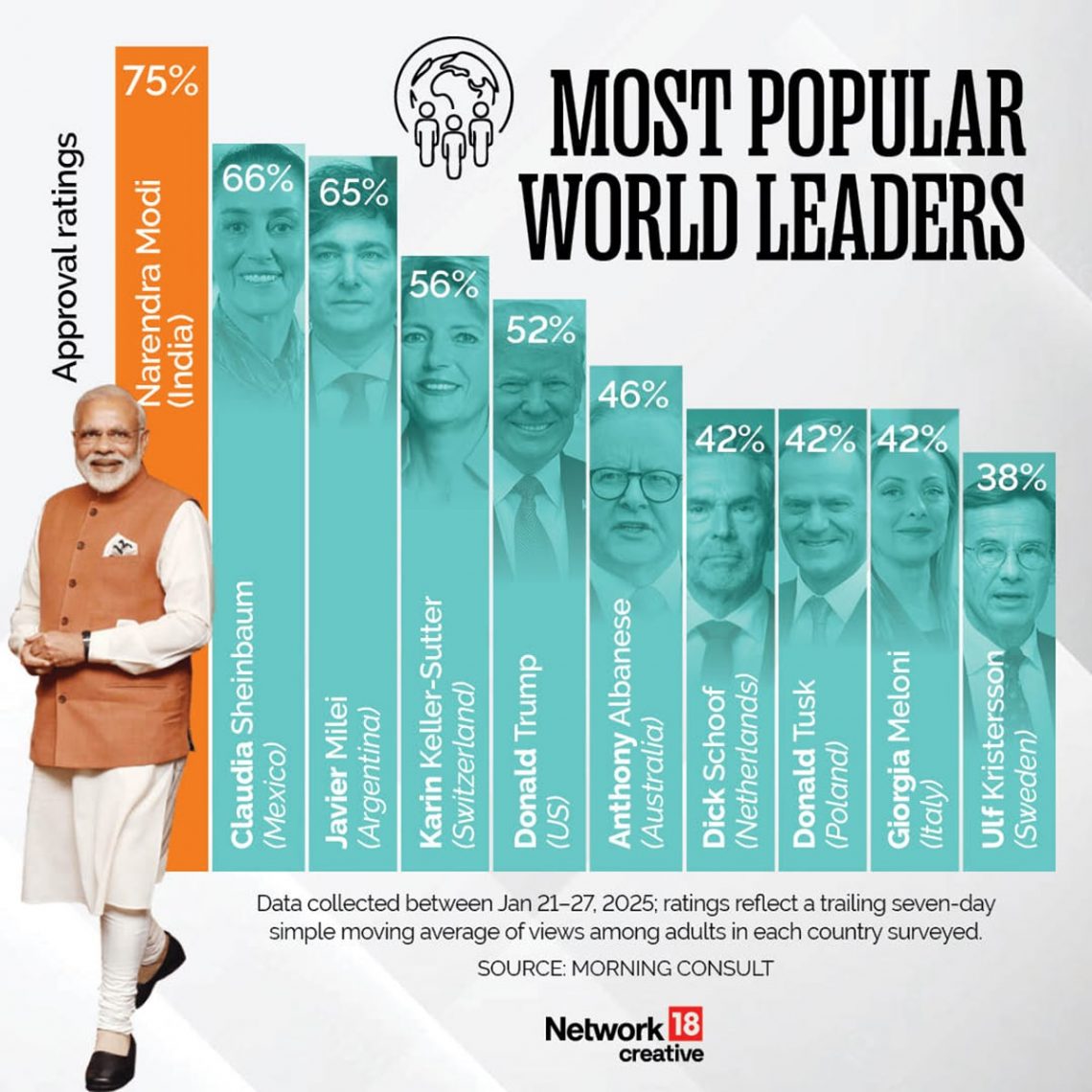Former Delhi chief minster Arvind Kejriwal and AAP national convener chose Prime Minister Narendra Modi as his primary rival quite early in his political career. The euphoria of mass support on the back of the anti-graft movement of 2011-13 and unexpected success in the 2013 Delhi Assembly election, in which Kejriwal stunned three-term incumbent chief minister Sheila Dikshit, saw the AAP founder rival with the then-BJP’s prime ministerial candidate.
Kejriwal even contested against Modi in Varanasi and suffered loss but the former Delhi chief minister never softened his rivalry with the prime minister. His attacks on Modi have remained sharp all these years.
Now Kejriwal has lost the electoral battle in the Delhi Assembly Election 2025. The fact is he was not directly contesting against Modi but rather against Parvesh Sahib Singh, the son of former BJP chief minister Sahib Singh Verma, in the New Delhi Assembly constituency. The flaws in Kejriwal’s political strategy are now evident. The saying “pride goes before a fall” seems apt, but perhaps Kejriwal has forgotten this lesson.
Delhi’s electoral reality
Kejriwal has consistently tried to position himself as Modi’s chief opponent on a national scale, even though Delhi remains a city-state where governance issues take precedence. His attempt to frame the Delhi election as a referendum against Modi has largely failed as voting trends suggest. The Delhi elections have historically focussed on governance, infrastructure, education, health and urban policies rather than national politics.
In the 2015 Delhi Assembly Election, AAP secured a landslide victory, winning 67 out of 70 seats, while the BJP managed only three. However, in the 2019 Lok Sabha Election, the BJP dominated all seven parliamentary seats in Delhi with a substantial vote share.
The 2020 Delhi Assembly Election again saw AAP winning 62 seats, with the BJP improving slightly to eight. These figures indicate that voters differentiate between local and national elections, a reality Kejriwal has struggled to acknowledge.
Kejriwal’s national ambitions and missteps
Kejriwal has made numerous unsuccessful attempts to expand AAP beyond Delhi. Although AAP won Punjab in 2022, this was largely due to anti-incumbency against Congress rather than Kejriwal’s direct influence.
In Gujarat (2022), AAP won only five seats, failing to mount a serious challenge to the BJP. In Goa (2022), AAP secured just two seats, and in Madhya Pradesh and Rajasthan (2023), the party failed to make any significant impact. These results highlight that Kejriwal’s appeal remains largely confined to Delhi and Punjab.
Modi’s popularity overshadows Kejriwal’s tactics
Prime Minister Modi remains one of India’s most popular leaders, with strong voter support across states. His popularity has often seen him making it to the world’s most popular leaders in surveys.
According to a survey conducted by Morning Consult between January 21-27, 2025, Prime Minister Modi emerged as the world’s most popular leader with an approval rating of 75 per cent. He was followed by Claudia Sheinbaum of Mexico at 66 per cent and Javier Milei of Argentina at 65 per cent.
Nationally, the BJP’s victory in the 2019 Lok Sabha election, securing over 303 seats, is a testament to his widespread appeal. After 10 years of incumbency, he led the BJP-headed NDA to power, though his party fell just short of the majority mark. Surveys consistently show Modi’s approval ratings above 60 per cent nationally, while Kejriwal’s popularity fluctuates within Delhi.
The BJP’s electoral strategy and robust organisation far outmatch Kejriwal’s sporadic attempts at national relevance. While Kejriwal has focussed on free electricity, water, and education in Delhi, Modi’s appeal is driven by economic reforms, infrastructure development and foreign policy.
Lessons for Kejriwal
Kejriwal’s strategy of portraying the Delhi elections as a fight against Modi is flawed and does not align with voter behaviour. In the past, Delhi voters have distinguished between state and national elections, supporting AAP locally while backing the BJP in parliamentary polls. However, Kejriwal’s arrogance and personal attacks on the prime minister have backfired, leading to a decisive rejection of both him and his party. Only time will tell whether Kejriwal learns humility or becomes politically weaker and more combative.
Link to article –



